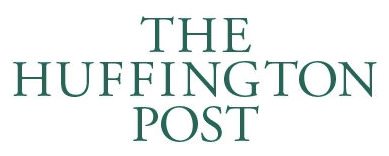Welcome To Juror Appreciation Week
CM Publisher Has Her Take On Asbestos-Medicare Issue
 Sara Warner, publisher of both the California and national Courts Monitor civil justice websites, is concerned that asbestos cancer victims are about to become victims of another kind. If money from settlements or other payments was owed to the government, what happens now? She has posted her take at The Huffington Post, and you can access it here.
Sara Warner, publisher of both the California and national Courts Monitor civil justice websites, is concerned that asbestos cancer victims are about to become victims of another kind. If money from settlements or other payments was owed to the government, what happens now? She has posted her take at The Huffington Post, and you can access it here.
Arbitration At Issue In Key California High Court Cases
WSJ Documents Delay, Crisis In Federal Civil Courts
WSJ Story Notes Civil Gideon Trend
The Wall Street Journal is taking notice of momentum for a “civil Gideon” approach to lawsuits involving life-changing decisions, like foreclosure or family custody. The WSJ reports that the newly approved state budget “… allocated $85 million for indigent civil legal services at the request of the state judiciary, an increase of $15 million from the previous fiscal year.”And in New York City, Mayor Bill de Blasio recommended in his preliminary budget proposal spending $36 million on free legal services in housing court, which would bring the city’s total spending on civil legal services up to about $50 million.By way of background, the deep-dive WSJ story noted that the trend has a history of success and “… in 2009, California passed the Sargent Shriver Civil Counsel Act, which created several pilot programs, supported by court fees, free legal counsel in civil cases. In its third year, the program has succeeded despite a modest $8 million annual budget, its coordinators say. More than 15,000 people have been served so far, most in eviction cases.“One of the big takeaways is that attorneys help settle cases,” said Bonnie Hough, managing attorney for California’s Judicial Council. Read the story here: New York Officials Push Right to Counsel in Civil Cases
New Report Laments San Bernardino Court Situation
Buzz Over NY ‘Silver Case’ Political Scandal
Civil Court Rationing Reaches Vermont
You can add Vermont to the list of states feeling the rationing pinch for court budgets, and like California two years ago and the rest of the country over time the civil courts are feeling the most pressure. The Vermont Association of Justice, a stakeholder group, wrote a letter to lawmakers outlining the challenge and noting that”… while abuse and other cases take priority, civil cases remain unresolved. Under the current conditions, attorneys warn clients that it will likely take 18 to 26 months before a judge hears a two-day civil jury trial. It may take as long as four months to schedule a three-hour-long case.”
A courts advocate offered this example: If an injured person is pursuing a case against a national insurance company, the insurance company can afford to wait. The injured person, however, is more likely to need the money sooner to pay for medical bills or other expenses. Instead of waiting for a court time, the insured person may agree to settle for less than their claim is worth.
Meanwhile, civil court delays are expected to get worse.
Read more here.
Judge: 2-Year Waits Triple In Budget-Cut Courts
The number of Los Angeles County civil cases facing delays of more than two years has tripled in the wake of budget cuts, according to Carolyn Kuhl, Los Angeles Superior Court’s presiding judge, She also tells NPR station KQED that “.. L.A. made 10 percent across-the-board cuts to court services in 2012, but it wasn’t enough. So the next year, they made further cuts. In all, 79 courtrooms were shuttered, limiting where people can contest traffic tickets or adjudicate small claims cases. The court has also cut mediation services and eliminated court reporters in civil cases.”
Kuhl noted that “… the setbacks are especially disheartening because she and others have worked for decades to shorten the amount of time it takes to resolve civil cases… and to see those gains essentially be lost — as we now have delays such that the number of cases pending over two years has tripled — is very discouraging.”
The judge’s comments are part of increased media coverage as the state budget process nears its annual decision-making point. Read the story here.